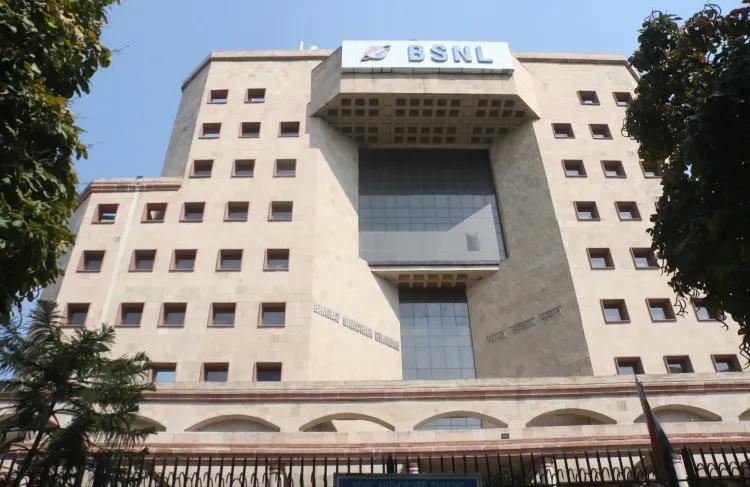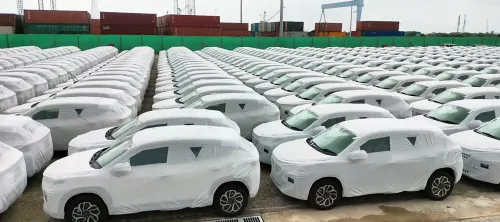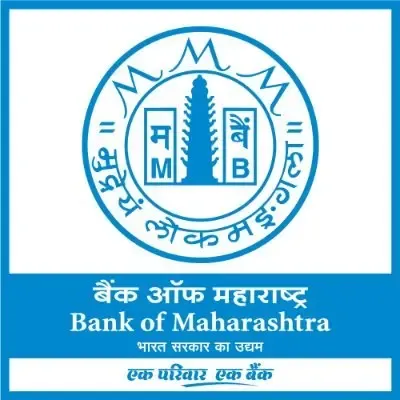How is BSNL's collaboration with tech giants shaping India's telecom innovation?

Synopsis
Key Takeaways
- BSNL's partnerships with global tech leaders enhance India's telecom capabilities.
- Training initiatives will focus on 5G, AI/ML, and networking.
- The program aims to empower youth with future-ready skills.
- Jabalpur will serve as a key center for telecom innovation.
- Improved job opportunities are expected in local economies.
New Delhi, Aug 20 (NationPress) Union Minister of Communications Jyotiraditya M. Scindia views BSNL's strategic alliances with the leading four global technology companies—Ericsson, Qualcomm, Cisco Systems, and Nokia—as a groundbreaking initiative that will not only enhance India's telecom capabilities but also empower the nation's youth with skills for the future.
These collaborations aim to accelerate India's digital transformation and reinforce the skilling ecosystem by introducing advanced training programs in 5G, AI/ML, networking, and digital technologies at BSNL's premier training institute, Bharat Ratna Bhim Rao Ambedkar Institute of Telecom Training (BRBRAITT) in Jabalpur.
The minister expressed in a media article that India will not just focus on manufacturing in India but will also cater to global markets, positioning Jabalpur as a central player in this transformation.
This partnership supports existing initiatives such as Digital India, Skill India, Make in India, and Startup India, establishing India as a global hub for telecom innovation and expertise. Additionally, it significantly boosts Aatmanirbhar Bharat with BSNL's remarkable resurgence, achieving consecutive quarterly net profits for the first time in 18 years.
Under the partnership unveiled by the minister last week, Ericsson will establish a 5G center of excellence at BRBRAITT, providing hands-on training complemented by world-class online modules, allowing students to experience global best practices while leveraging BSNL's strong telecom infrastructure.
Qualcomm will focus on advanced 5G and AI courses, offering internships and sponsoring training for the first 100 students, thus enhancing employability and creating pathways into high-demand technology sectors.
Cisco will broaden its esteemed Networking Academy to make quality training in networking and cybersecurity accessible to all.
Through partnerships with non-profit organizations, it will ensure that learners throughout India, regardless of their location, can acquire industry-relevant skills. Nokia will set up a 5G and AI-ML Lab, focusing on core network training and emerging telecom applications, offering joint certification from both Nokia and BSNL, thereby enhancing the industry credibility of graduates.
The curriculum, ranging from intensive two-week modules to comprehensive 84-hour programs, is tailored for students, professionals, and public sector employees. Beyond skilling, this initiative will promote product innovation, prototyping, and telecom entrepreneurship, transforming learners into creators rather than mere consumers of technology.
The minister emphasized that local economies, particularly in Madhya Pradesh, will witness increased job opportunities, while India as a whole will develop a workforce ready to compete globally. For consumers, the broader impact will be improved connectivity, innovative telecom solutions, and expedited rollout of next-generation services.
"India's success in expanding affordable broadband, facilitating digital payments like UPI, and leveraging technology for governance has become a model worldwide. The upcoming wave of digital growth will be characterized by technologies such as 5G, AI, IoT, and cybersecurity, and India will not remain passive. It will lead, innovate, and establish global benchmarks," the minister declared.










